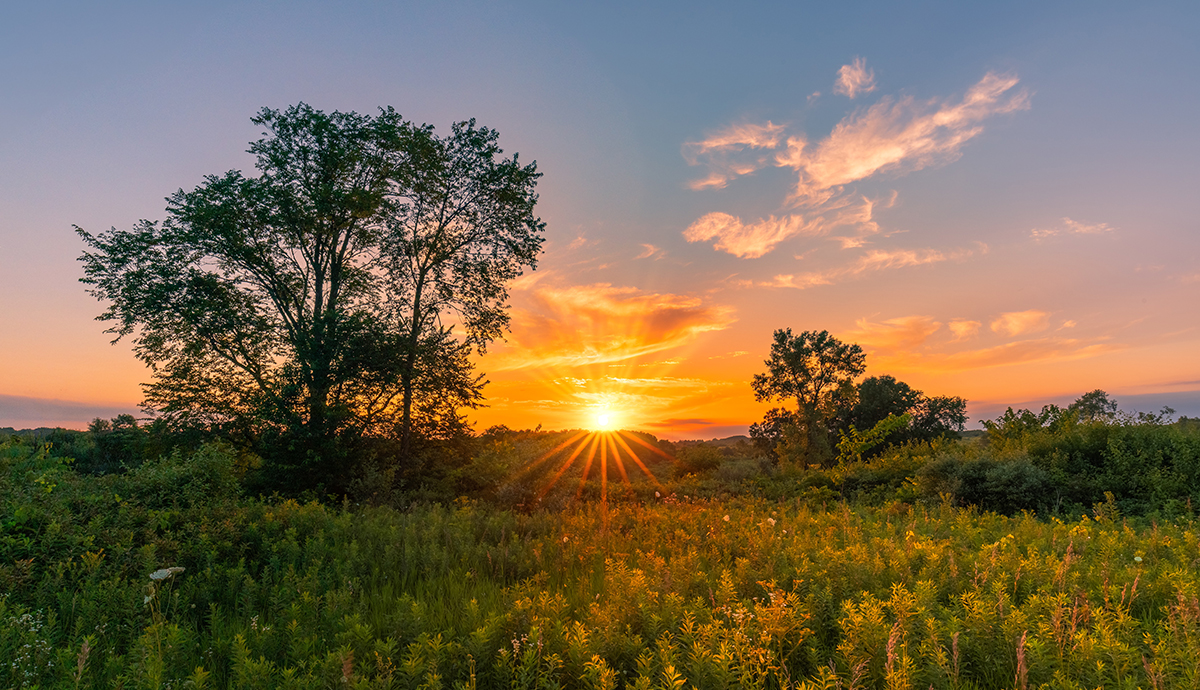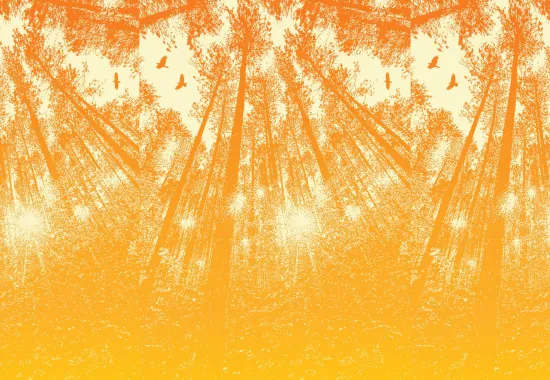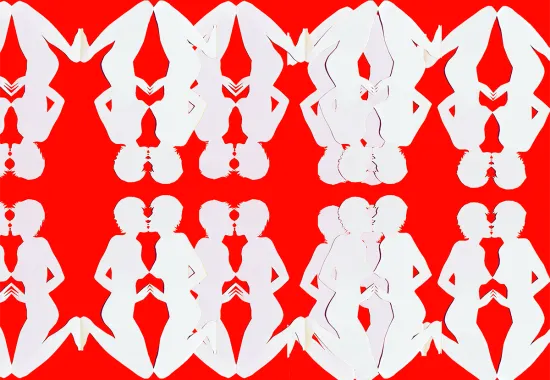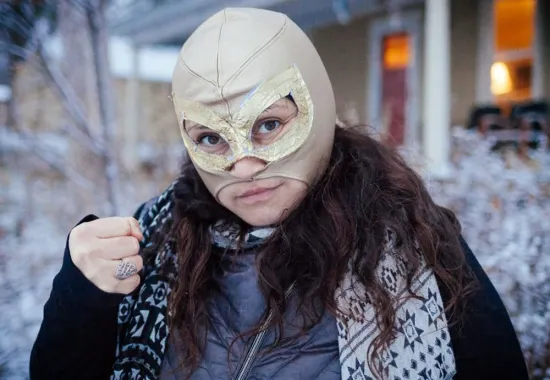A Conversation with Ted Kooser: In Dialogue with Judith Harris
JH: Other than for those early mentors like Will Jumper, who has influenced your work?
TK: I’ve had many friends with whom I’ve exchanged poems, including you, Judith, but none whom I think of as mentors, us being all from about the same generation, just helping each other. There were always, though, notable poets in the generation just ahead of me to whom I looked up, like Donald Hall, Maxine Kumin, Robert Bly, Elizabeth Bishop, May Swenson, Galway Kinnell, Tom McGrath, Denise Levertov, James Wright and others, some of whom are now almost forgotten, like Brewster Ghiselin.
JH: Place holds the past even when we lose our sense of connection to what has gone before. Place outlasts much that has vanished. What is remarkable about your poetry is its wonder of place—whether it is a remote, abandoned farmhouse in the plains or, or in a good will store or on a long winter walk. In a few master strokes, place opens up in your poems. Could you please talk about “the place of place” in your poems?
TK: One notices how an anecdote often begins, “I was on my way to the grocery….” or “It was raining cats and dogs….” There’s a convention for helping the listener to immediately situate himself or herself on the ground of a story. I have no doubt that this goes back to the earliest experiences we humans related to each other. I don’t know that I ever consciously thought to do this in a poem, but it happened naturally, just as it would in conversation. And, working toward economy and compression, in revising poems I’ve tried to make those settings as vivid as possible. Wasn’t it Eudora Welty who said that place is: “the racing heart of fiction”? I think it’s the racing heart of poetry, too.
One of the reasons I write, perhaps the primary one, is to please myself, and on a good day I really delight myself.
JH: The intimacy of your poetry has led to its enormous popularity in part due to your keen ability to discern poetic language in everyday speech that is also marvelously sonorous and imagistic. Your careful selection of words often speak for the ineffable—human emotions of love, grief, heartbreak, joy, poems that others can model their own emotions on. This is why people use poetry on occasions to articulate a significant event: weddings, funerals, inaugurations, when people feel too deeply for words. It is well known that you write every day before sunrise; do you have moments in which you recognize an early draft is expecially good, or vise versa?
TK: One of the reasons I write, perhaps the primary one, is to please myself, and on a good day I really delight myself. Many poems always look brilliant for few hours, then start to fade, then start to smell. It’s best to let them rest until they’re old enough that it seems I am reading the poems of somebody else.
JH: What is your daily practice like?
TK: While working, I try not to think too much about where the poems are coming from because that questioning or critical part of my mind is a sure killer of associational play. I most often start out my writing time by reading a few poems by somebody else, and something might nudge me to write a few words, Or I sit looking out of the window into the pre-dawn darkness and just wait for a few words to come to me. This accounts for the dozens of poems I’ve written about what it’s like before dawn, sometimes in moonlight, sometimes in utter darkness with the lamp by my chair being the only light in the world.
JH: Another well known feature of Kooser folklore is your dislike of academic posturing or pretentiousness in poetry and life, and your poetry has become synonymous with integrity. As an autobiographical poet, could you comment on your use of the autobiographical “I” and why you never caught the fever of mid-twentieth century dramatic personaes?
TK: When I was a young man I tried to write like the contemporary masters. I remember a poem in the manner of Pound, for example, and metrical narratives like Browning. Once, for a final paper in an undergraduate class in literary criticism I wrote 550 lines of heroic couplets in response to Pope’s “Essay on Criticism.” Fortunately it got lost years ago! It was part of my growing up, emulating the great. As a mature man, though, what I’d tell my students is that the most important goal is to write like yourself, to be completely yourself. It’s a difficult task, but if you write long enough you’ll slowly drift in that direction. It takes confidence, lots of it, but that eventually builds on its own. The “myself” who I write like is loath to talk too much about himself, though I do seem to be going on and on here!
JH: You possess a rare quality that readers trust—it is something that can’t be captured or described, but it is there: a reader just senses it. So that when one reads a book of your poems, the speaker is continuous from poem to poem. This is pure artistry, and I’m reminded of something that Denise Levertov told me about her preference for poems that are composed extemporaneously, and therefore becomes transformative. Although she herself wrote dramatic monologues, they were not as existential in process. Do you think that poetic ventriloquism is tantamount to truth or fiction?
TK: Again, I’m not sure…. I do at times make up things, but I’ve found that no matter how convincing they may sound, there’s something missing. This morning, I saw a newspaper photograph of a group of people doing this and that at a political rally. One of the men was bent down as if to reach for a hat lying on the ground. I might have made up what he was doing: His hat blew off, and he was picking it back up. Or perhaps it was somebody else’s hat, and he was picking it up to give it back to the owner. Or perhaps he wasn’t reaching for it at all, and instead had just set it on the ground to cover up something., Those all would be possibilities for fabricated or fictionalized poems, but the true poem is in not knowing what he was doing, and “fessing up” to that ignorance. For me, a true poem presents what we actually see. I may not understand what I see, but that ignorance is essential to the poem. I want my readers to do what they want to with just what I've given them. Does that make any sense?
What kind of a person writes something like that just to get a publication credit for their CV?
JH: Indeed it does; it was the in-betweenness of knowing and not knowing that became interesting, and there is power in confiding in a reader one's uncertainty. It isn’t wishy -washiness; it is genuine. Valuing honesty is something you make quite clear in your essay “Lying for the Sake of Making Poems.”
TK: I published that essay in Prairie Schooner years ago, and it’s been reprinted in the Graywolf anthology After Confession: Poetry as Autobiography. In that article I talked about poets who’ve manipulated their readers by making up things. One woman wrote a series of poems about her father sexually abusing her, and they were accepted and published. But I learned that her father hadn’t abused her and was living. What kind of a person writes something like that just to get a publication credit for their CV?
JH: Something that not all readers know about you is that you are a gifted painter. When I think of your paintings, I think of impressionists painting in the “open” air in order to paint the presence of natural light and forms that they couldn’t get quite right in the studio. Could you say something about what most critics have noted about your poetry: a striking visual world on the page?
TK: I’m a competent painter, Judith, a “Sunday painter,” a sketcher, but I’m not an artist in the best sense of that word. I have good friends who are artists and I wouldn’t presume to elevate myself into their ranks. I don’t exhibit my work, I don’t sell it. Sometimes I give it away. If I were to try to show my work for sale it would ruin the pleasure of painting. I once sold a painting for a good price, and I’ve regretted it every day since. Selling it made me into somebody I didn’t want to be. When money gets into anything it makes it rot from the core. But how much fun it is to have a visitor compliment something I’ve painted and then to be able to just give it to them, to say, “Here, it’s yours.”
JH: Those two words, “It’s yours,” say so much about your sensibility beginning with the first poem in Sure Signs, “Selecting a Reader,” in which you very subtly turn the egotistical tables on poets who disregard the reader’s needs and immerse themselves in the self-dialectic of the poem as an immediate reflector of the self. But as we’ve been discussing the relationships between poet and reader in the context of the human world, let’s segue into talking about your vast body of nature and animal poems. Do you sense a difference in how you approach the non-human world? Are there writers who you like to read who write about the landscape?
TK: Because my wife and I live in the country, we have experiences with wildlife every day. Within a few yards of the house we have deer, rabbits, raccoons, woodchucks, opossums, and a pond with snakes, frogs, and so on. Wild turkeys, too. Owls, hawks, dozens of species of songbirds. Nearly all of my poems about animals portray them as sympathetic fellow-travelers, just doing their best to get through their lives. Most often there’s a little humor in those poems because the animals and I are attuned to our foibles. As to other writers who write about landscape, many do, but in the poetry of most of those people the landscape is just a backdrop. I prefer to think of it as having its own life.
Recommended
An Interview with Ren Cedar Fuller
“Tracing the shape of real bodies”: An Interview with Frances Cannon
Becoming Visible





